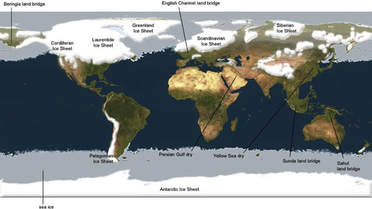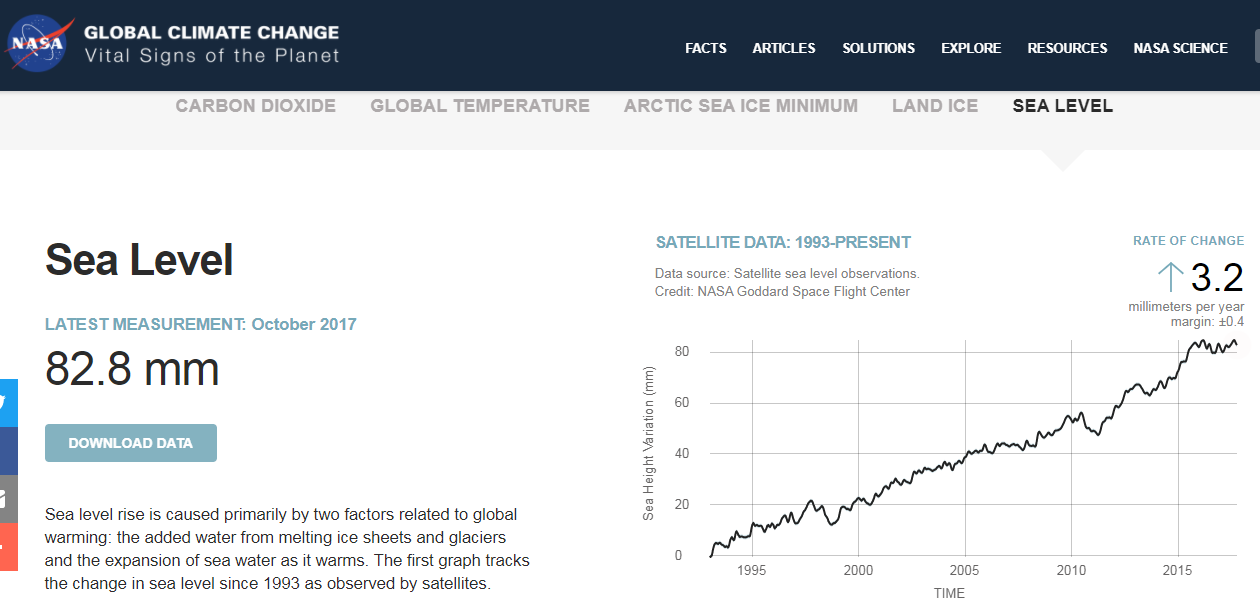- Home
-
Articles
-
2017
>
- North Korea; A Reflection of a Global Hybrid Conflict
- Turkish Crisis: World War III but nobody knows what side they are on?
- Glaciers or Rising Oceans; Damned if you do, damned if don’t, And maybe both
- Walls, Walls, Walls
- France's Hybrid Civil War
- Predictions of space exploration for the next 500 years
-
2018
>
- NOAA shows a modest 3.2mm sea level rise over the last year. How significant is the current sea level raise from a geological perspective?
- Mexico’s Quasi Hybrid Insurgency and a Reflection on Murder Rate Statistics
- Russia strives for imperial might in the context of the first World Hybrid War
- Paleohydrological events from the late Pleistocene to the early Holocene 30kya to 1500 AD
-
2019
>
- Micro Interglacial Cycles and an alternative understanding to Sea Level Fluctuations from a Paleoclimatic Perspective the Last 140,000 years
- Increasing Summer Insolation of the Northern Hemisphere Trends Towards Reduced Ice Volume; Coupled by a 400,000 year Eccentricity Cycle Extending the Holocene Interglacial
- Why are the Chinese Grumpy: Up to 500 million people died from famine, natural disasters, war, political suppression, ethnic cleansing, pestilence and such the last 2200 years
- China's New Dynasty: Middle Class, Automobile, Science, and Robot Revolution
- Orbital Variations Effects on Interglacial Behavior and Paleohydrological Events during the Quaternary Ice Age: A Compilation of MOTM editorial pieces
- Native American Society and Civilization Collapse Part I; Old World Diseases and Expansion/Collapse of Empires not Unique to European Colonization
-
2020
>
- The History of the “Sieg Heil” Nazi Salute and its shared common origins with the Roman Salute, Bellamy salute, and the swearing in of the Mexico President; And the not so innocent raising of the Fist of Black power
- In the excitement of the 2019-2020 Bush Fires in Australia; people have forgotten about the Legendary Australian Bush Fire of 1974-1975. The Current Bush Fire doesn’t even hold a torch up to it
- Covid 19 Crisis; what does age have to do about it in Italy, forgotten cancer crisis caused by the financial crisis in 2009, and why Africa doesn’t care
- A Quick Look at Nuclear Power in 2020 and Beyond
- India: Rising Economic Star with a Contentious and Troubling Past
-
2017
>
- BulletinNews
- MOTM EM
- Video
- Meetings/Symposium
- Podcasts
- Contributing Organizations
|
Since 1880 the ocean began to rise briskly, climbing a total of 210 mm (8.3 in) through 2009- about 7 inches a century. However, if you put that in a historical perspective; 19,000 to 6,000 years ago the sea level raise rate was roughly 529% to 2814% higher then today. Oceans during this time raised close to 120 metres (4,724 inches), this would be 56,915% percent larger then the 8.3 inch sea level raise since 1880. This all happened from 18,000 to 4,000 years before the birth of Jesus. National Oceanography Centre "Global sea level rose by a total of more than 120 metres as the vast ice sheets of the last Ice Age melted back. This melt-back lasted from about 19,000 to about 6,000 years ago, meaning that the average rate of sea-level rise was roughly 1 metre (37 inches) per century. Previous studies of sea-level change at individual locations have suggested that the gradual rise may have been marked by abrupt ‘jumps’ of sea-level rise at rates that approached 5 (197 inches) metres per century. Their analyses indicate that the gradual rise at an average rate of 1 metre per century was interrupted by two periods with rates of rise up to 2.5 metres (98 inches) per century, between 15 and 13 thousand years ago, and between 11 and 9 thousand years ago." However, this is not the whole story. Recent data pulled from the NASA website suggests that the sea level fluctuated very little since September 16, 2015. In other words, no observable data in the last 2 years can show a discernible sea level rise at all.  Nor is the current shrinking of Greenland's Glaciers Unique. D Dahl-Jensen 2013 showed that Greenland's glaciers 122,000 years ago, during the Eemian, reached surface elevations 130 ± 300 metres lower than today. Is the Arctic Ocean's shrinking summer ice concentrations unique? One of the arguments that exists why the Eemian is not a good analogy for what is happening right now is that the Arctic sea still had summer ice coverage as compared to current conditions. The argument also suggests that the current conditions are unique because the Arctic ocean was cooling during the late Eemian. Recent observations by Stein en al 2017 show that there is discrepancies in these widely held opinions. Their data showed that the Arctic Ocean may have been close to ice free from 116,000 to 120,000 years ago. "There, planktic δ18O records from cores MD95-2010 and MD99-2304 (for core locations see Fig. 7e) document a climatic optimum in the early-middle part of the LIG between about 126 and 116 ka, related to a strong poleward extension of warm Atlantic Water. These conditions are quite similar to those also described for the Early Holocene at cores MSM5/5-712-2 and NP05-11-70GC (Fig; see Fig. 7e for core locations), i.e., very low PIP25 values of 0.2 and less, interpreted as almost ice-free conditions triggered by increased Atlantic Water inflow." Also, during the Eemian, "the mean air temperatures in Northeast Siberia that were about 9 °C higher than today air temperatures above the Greenland NEEM ice core site of about 8 ± 4 °C above the mean of the past millennium North Atlantic sea-surface temperatures of about 2 °C higher than the modern (PI) temperatures and a global sea level 5–9 m above the present sea level (Stein en al 2017)". Further more an addition paper from Stein el al 2017 shows that there was a significant increase in ice in the Chukchi Sea and the East Siberian Sea the last 4,500 years as compared to the early Holocene. These new findings are excellent science work and engaging to the reader. The reader will be left with many mysteries and the papers themselves only open doors to more questions and provide a direction for research to head in. We would also like to state we are not suggesting that Carbon Dioxide levels are not rising or ocean and surface temperatures have trended up lately. It is widely held in the science community that Carbon Dioxide levels are rising and there has been observable temperature increases globally on the surface and in the ocean. We are only suggesting that Climate Sensitivity be dialed down and let these people continue to do their research on the Eemian, Penultimate, and other earlier interglacial undisturbed by global warming hysteria... Everybody is talking about the oceans rising and the ending of the world. But what would happen if the glaciers blanketed Canada and Eurasia. In a world looking for more certainty this recent research only leads to more questions. Please also see our article; Glaciers or Rising Oceans; Damned if you do, damned if don’t, And maybe both
2 Comments
Ralph LeVitt
12/4/2018 06:46:37 pm
I would submit that the lack of rise is due to ice caps & glaciers growing, as the tons per second of silt and soil runoff into the oceans hasn't quit.
Reply
Ralph LeVitt
12/4/2018 07:49:38 pm
https://onlinelibrary.wiley.com/doi/abs/10.1002/clen.201200127
Reply
Leave a Reply. |
Proudly powered by Weebly
- Home
-
Articles
-
2017
>
- North Korea; A Reflection of a Global Hybrid Conflict
- Turkish Crisis: World War III but nobody knows what side they are on?
- Glaciers or Rising Oceans; Damned if you do, damned if don’t, And maybe both
- Walls, Walls, Walls
- France's Hybrid Civil War
- Predictions of space exploration for the next 500 years
-
2018
>
- NOAA shows a modest 3.2mm sea level rise over the last year. How significant is the current sea level raise from a geological perspective?
- Mexico’s Quasi Hybrid Insurgency and a Reflection on Murder Rate Statistics
- Russia strives for imperial might in the context of the first World Hybrid War
- Paleohydrological events from the late Pleistocene to the early Holocene 30kya to 1500 AD
-
2019
>
- Micro Interglacial Cycles and an alternative understanding to Sea Level Fluctuations from a Paleoclimatic Perspective the Last 140,000 years
- Increasing Summer Insolation of the Northern Hemisphere Trends Towards Reduced Ice Volume; Coupled by a 400,000 year Eccentricity Cycle Extending the Holocene Interglacial
- Why are the Chinese Grumpy: Up to 500 million people died from famine, natural disasters, war, political suppression, ethnic cleansing, pestilence and such the last 2200 years
- China's New Dynasty: Middle Class, Automobile, Science, and Robot Revolution
- Orbital Variations Effects on Interglacial Behavior and Paleohydrological Events during the Quaternary Ice Age: A Compilation of MOTM editorial pieces
- Native American Society and Civilization Collapse Part I; Old World Diseases and Expansion/Collapse of Empires not Unique to European Colonization
-
2020
>
- The History of the “Sieg Heil” Nazi Salute and its shared common origins with the Roman Salute, Bellamy salute, and the swearing in of the Mexico President; And the not so innocent raising of the Fist of Black power
- In the excitement of the 2019-2020 Bush Fires in Australia; people have forgotten about the Legendary Australian Bush Fire of 1974-1975. The Current Bush Fire doesn’t even hold a torch up to it
- Covid 19 Crisis; what does age have to do about it in Italy, forgotten cancer crisis caused by the financial crisis in 2009, and why Africa doesn’t care
- A Quick Look at Nuclear Power in 2020 and Beyond
- India: Rising Economic Star with a Contentious and Troubling Past
-
2017
>
- BulletinNews
- MOTM EM
- Video
- Meetings/Symposium
- Podcasts
- Contributing Organizations


 RSS Feed
RSS Feed